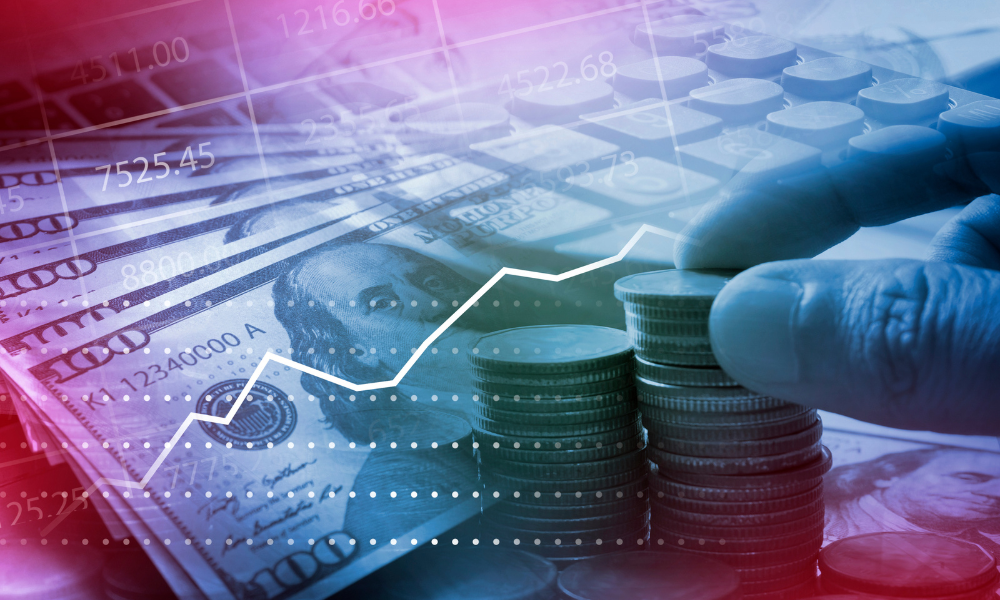

With eleventh hour developments putting a hold on US tariffs on Canada and Mexico for the next 30 days, but President Trump still determined to rebalance trade relationships, economic uncertainty remains.
But even though the tariffs have been anticipated for some time, the potential impact on the domestic outlook has not dampened sentiment among American consumers or businesses, according to two new surveys.
Gallup polled consumers just before Trump’s inauguration last month and found that most respondents expect economic growth (53%) and the stock market (61%) to rise over the next six months, with 41% believing interest rates will fall despite the Fed’s softened stance.
However, there are some negatives with 52% expecting inflation to rise this year – albeit fewer believing so than in recent years - and an equal split (38% each) on whether unemployment will rise or fall.
Although the report notes that optimism on the economy is heavily influenced by Republican respondents (stock market sentiment is more broadly positive) with Democrats unconvinced, the data overall suggests a favorable outlook on how the president will manage the economy during his second term, given his approval rating in this regard during his first term.
Meanwhile, business leaders of companies with annual revenues of $10M-$500M were surveyed by Wells Fargo in the weeks following November’s election and the results were released this week.
They showed that commercial business sentiment had not only improved in the fourth quarter of 2024 when compared the prior quarter but reached the highest sentiment index score (112.9) recorded in the past four years (up from 102.3 in Q3 2024).
Optimism included the view of 51% that the US economy will improve in the next 12 months, while 63% expect an improved economy in the next five years. More than four in ten expect the state of their business to improve over the next 12 months compared to just 6% who expect it to be worse.
“The highly positive commercial sentiment recorded in Q4 was likely driven by the elimination of election unknowns, which typically delay business decisions and tend to raise concern,” said Mary Katherine Dubose, head of Specialized Industries for Wells Fargo Commercial Banking. “The second highest commercial sentiment index score we have recorded was in Q2 of June 2021 (111.7), following the release of the Covid vaccine, another time when businesses saw a clear way forward after a time of uncertainty.”
However, when asked about business financial conditions, 57% of companies identified inflation as the top factor negatively impacting their company.
Their top three concerns were increased prices and costs (70%) reduced demand for goods and services (49%), the possibility of prolonged economic recession (48%), and hiring/retaining employees (46%).

It's a showdown for the ages as wealth managers assess its impact on client portfolios.

CEO Ritik Malhotra is leveraging Savvy Wealth's Fidelity partnership in offers to Commonwealth advisors, alongside “Acquisition Relief Boxes” filled with cookies, brownies, and aspirin.

Fraud losses among Americans 60 and older surged 43 percent in 2024, led by investment schemes involving crypto and social manipulation.

The alternatives giant's new unit, led by a 17-year veteran, will tap into four areas worth an estimated $60 trillion.

"It's like a soap opera," says one senior industry executive.
RIAs face rising regulatory pressure in 2025. Forward-looking firms are responding with embedded technology, not more paperwork.
As inheritances are set to reshape client portfolios and next-gen heirs demand digital-first experiences, firms are retooling their wealth tech stacks and succession models in real time.
